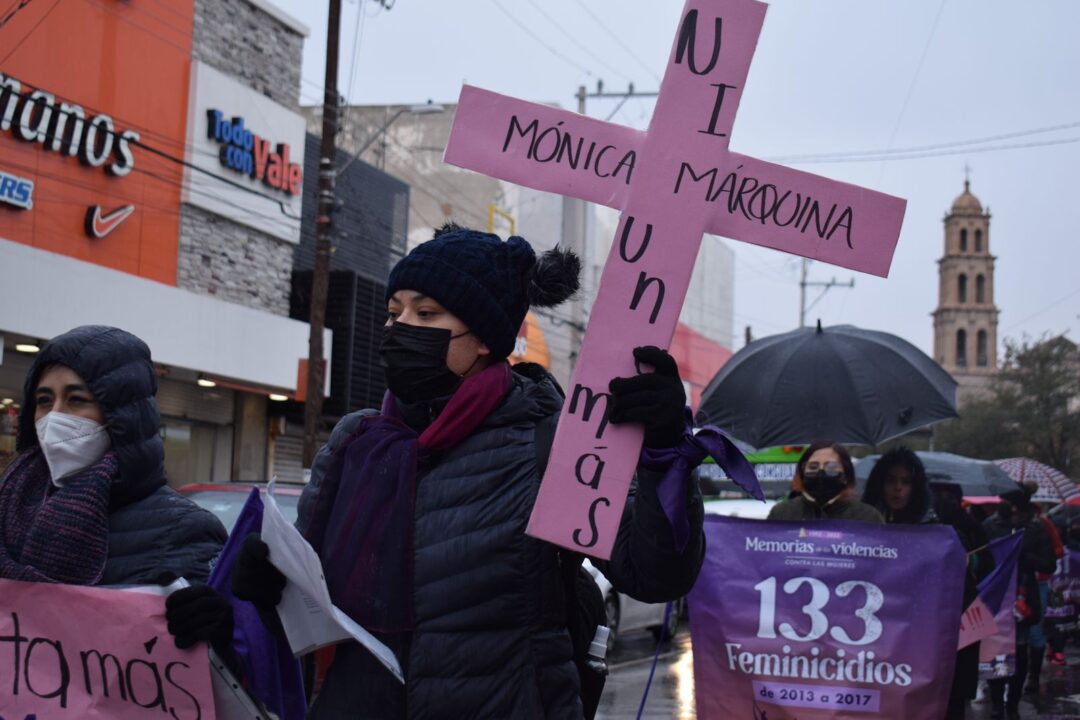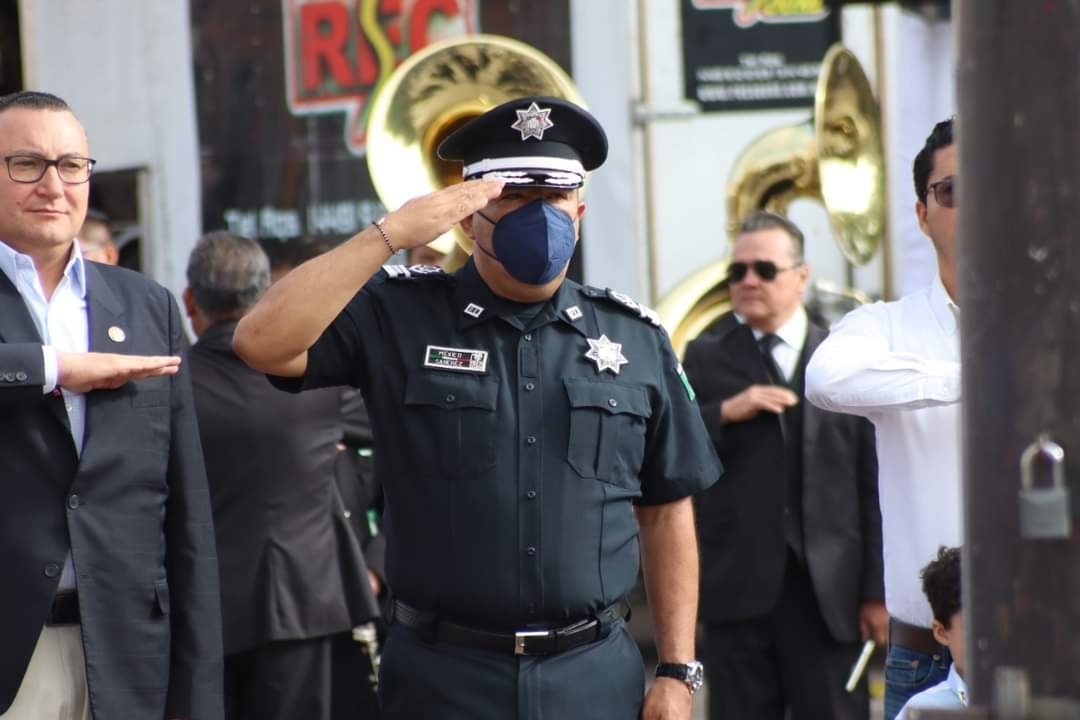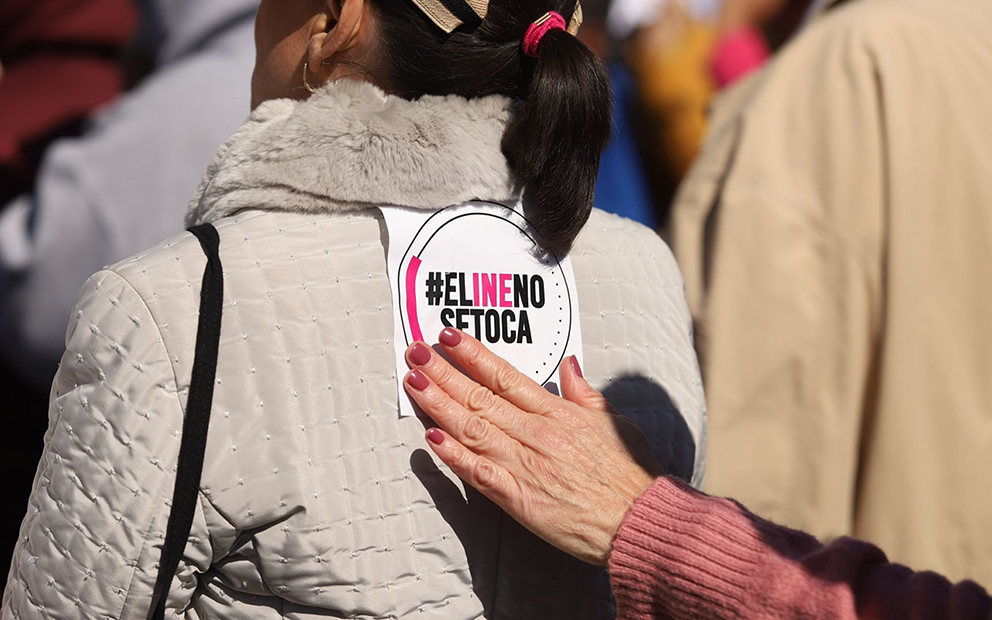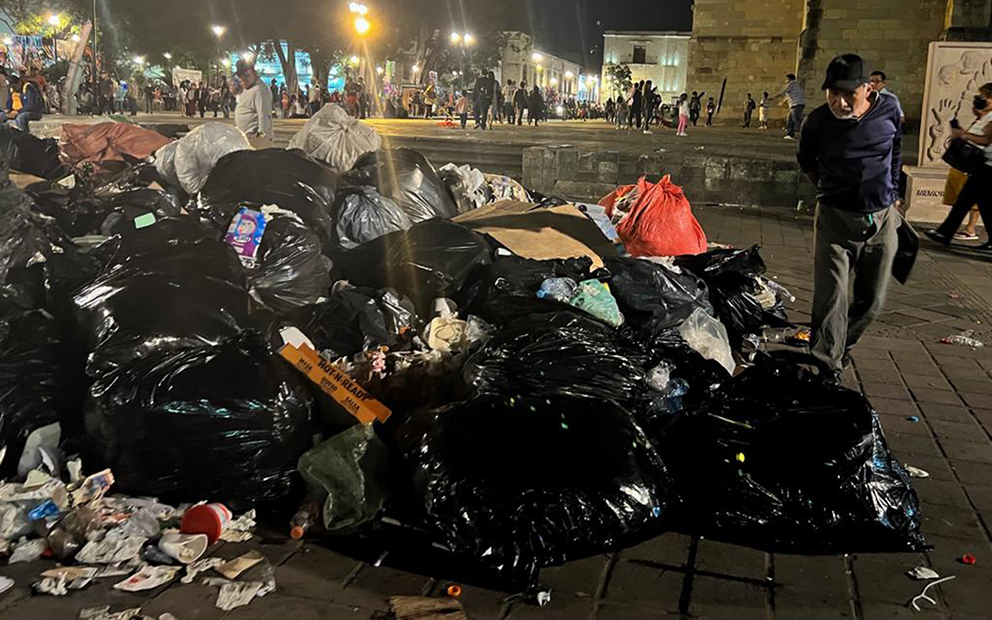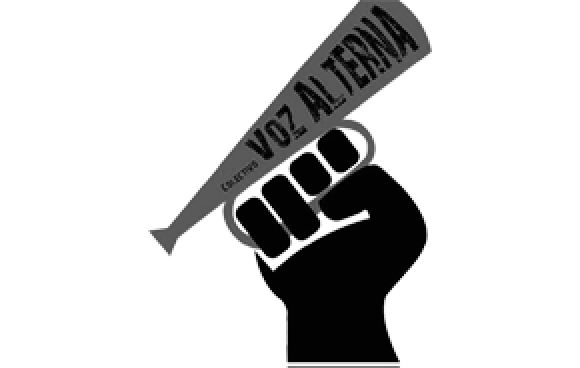Five migrant shelters in Ciudad Juárez attacked by armed groups
5 mayo, 2022
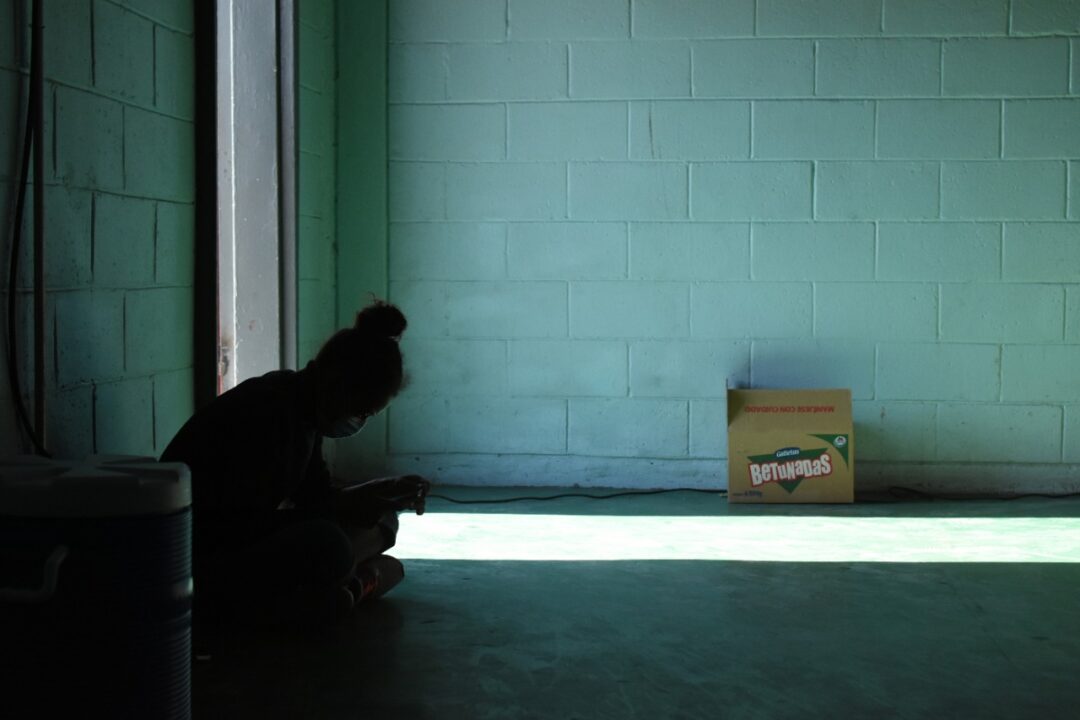
Extortions, kidnappings, arbitrary searches and robbery were the main crimes committed against migrants in Mexico last year. According to a study by the Jesuit Migrant Service, 22 percent of aggressions against migrants in Ciudad Juárez were committed inside shelters
Text by Verónica Martínez, originally published April 27, 2022 by La Verdad de Juárez.
Translated by Dawn Marie Paley for Pie de Página in English.
CIUDAD JUÁREZ—Thousands of people who have been displaced from their homes in Central America and states in southern México transit through Ciudad Juárez, where they wait to cross the border to the US. But once they’re here, many are victims of criminal groups, which have even carried out attacks in humanitarian spaces.
Extortions, kidnappings, arbitrary searches and robbery were the main crimes committed against migrants in México last year, according to a study by the Jesuit Migrant Service (SJM), on the Requirements for Assistance in Ciudad Juárez.
According to the same report, which is based on more than 30 interviews with staff and volunteers at migrant shelters, international and local organizations, and government institutions connected to migration, 22 percent of aggressions against migrants in Ciudad Juárez were committed in shelters.
The report also found that state authorities, like the municipal police, are key victimizers, together with members of organized crime, coyotes and migrant guides.
The context of migration in Ciudad Juárez is one of generalized violence and organized crime control. Often, these issues aren’t discussed openly, and complaints to the authorities aren’t lodged for fear of repercussions and fruitless investigations, according to those interviewed.

In November of 2020, various individuals who were armed entered a shelter located in the southwest of the city, and assaulted people who were staying there.
In addition to stealing cash and cellphones, the aggressors–who were later identified as municipal police–beat up two people, according to the director of the shelter. Out of fear of reprisal, he wished to keep his name, and the name of the shelter, anonymous.
He said he filed a report about the attack to the state’s Human Rights Commission and the Attorney General of Chihuahua. He also notified the State Council for Population and Attention to Migrants (COESPO), which coordinates humanitarian efforts to assist migrants in Ciudad Juárez.
The event was traumatic for those staying at the shelter, who needed medical and psychological attention, said the director.
“Most of them are fleeing violence, and an experience like this further terrifies them,” said the director. He said that after the attack, some of the people staying in the shelter left the city and tried to cross to the US in an irregular manner.
“Very few of them got to their destinations in the United States; I heard that some were deported to their countries of origin, like El Salvador and Honduras,” he said.
As a security measure, the director of the shelter reinforced the gates that open into the building. Even so, the shelter has an ‘open door’ policy, as most of the people who stay there are working. They’ve had to limit entries and exits to the humanitarian space, now, only the managers can open up when someone knocks on the door.
Though he presented a complaint to various authorities, the director said he decided not to pursue the case out of fear of reprisals.
“We’re not going to get back what was stolen, and we could be negatively affected [if we continue with the complaint],” he said. “I was more worried about the safety of [the migrants] than I was about the money they stole.”
***
At the end of March, another attack took place against migrants of various nationalities in the north of Ciudad Juárez, according to Chihuahua state’s Public Security Secretariat (SSPE).
Late into the evening of March 28th, two males entered the building carrying firearms.
The SSPE report noted that the two individuals were followed by members of the municipal police. The person in charge said that when he left the shelter he found “some long guns,” and called 911.
The next morning, SSPE officers went to the shelter and confiscated a handgun that was handed over to the Federal Public Ministry of the Federal Attorney General’s Office.
The director of the shelter, who didn’t respond to a request for an interview with La Verdad, reported the event to the COESPO, according to Enrique Valenzuela, the head of the organization.
“We’ve studied all these events and we’ve also requested the corresponding authorities do the same,” he said.
“We’re concerned about the security of those who run these spaces, and with the safety of the managers, the coordinators and the people staying in them,” he said. “Any efforts to improve safety in these spaces are welcome.”
At least five shelters have been raided, violently threatened, and the people staying there assaulted, according to Rosa Mani, who is part of the Somos uno por Juárez network.
“There’s been numerous events. You could speculate that this is happening because we are part of faith communities, but it’s more generalized. All of the humanitarian spaces in the city are at risk,” said Mani.
Police regularly monitor shelters, but Mani says that this doesn’t translate to any kind of protection.
“The need for safety is fundamental, but there’s no guarantees,” said Mani. “It’s not just in migrant spaces, our community [residents of Ciudad Juárez] are in the same situation.”
Security measures in shelters are minimal, according to Santiago González Reyes, the director of Human Rights in Ciudad Juárez. The municipal shelter located in the Municipal “Kiki” Romero Gym is guarded by local police, and the federal shelter is guarded by members of the National Guard. But self-organized, autonomously run spaces don’t have any protection.
According to the International Organization for Migration (OIM), there are 23 migrant shelters in Ciudad Juárez. Of them, 15 are part of the Somos Uno por Juárez network. This helps them better their services and improve the conditions they can offer to migrants arriving to the border city.
Accumulated vulnerability
People in the process of migrating often deal with impunity due to the fear of or aversion to making a complaint if they are victimized, according to the Jesuit Migrant Service report.
Making a complaint takes time and going to the institutions requires economic resources. When complaints are made, there is little progress and it’s very difficult to locate those responsible. The AG’s office doesn’t follow up on the cases. The report also found that case records and statistics needed to follow up are lacking.
In addition, the continuity of these cases is complicated by the fact that people migrating are mobile, and without a physical address it is difficult to contact them, according to González.
People who are in the process of migrating have an “accumulated vulnerability” which is compounded by poverty and exacerbated if they are women, who may also be victims of gender violence. They also deal with the difficulties of travelling with children, and face discrimination because they are Indigenous, according to the director of one of the shelters targeted by an armed group.
“Not knowing where to go, not having a support network, dealing with institutional stigma, combined with the fear of talking to authorities because they might question you and you lack documents or are in an irregular situation, all of that generates vulnerability,” said González.
This report was originally published by La Verdad de Juárez, which is part of the Media Alliance organized by Red de Periodistas de a Pie. You can read the original here.
Click here to sign up for Pie de Página’s bi-weekly English newsletter.
Ayúdanos a sostener un periodismo ético y responsable, que sirva para construir mejores sociedades. Patrocina una historia y forma parte de nuestra comunidad.
Dona

